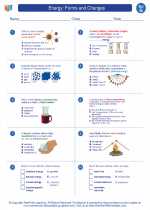Disease
A disease is a condition that impairs the normal functioning of the body. It can be caused by a variety of factors, including pathogens such as bacteria, viruses, and fungi, as well as genetic and environmental factors. Understanding the causes, symptoms, and treatments of different diseases is an important area of study in the field of science and medicine.
Types of Diseases
There are several types of diseases, including infectious diseases, chronic diseases, genetic diseases, and autoimmune diseases.
- Infectious diseases: These are caused by pathogens such as bacteria, viruses, parasites, and fungi. Examples include the flu, tuberculosis, and HIV/AIDS.
- Chronic diseases: These are long-lasting conditions that often progress slowly over time. Examples include heart disease, diabetes, and cancer.
- Genetic diseases: These are caused by abnormalities in an individual's genetic makeup. Examples include cystic fibrosis, sickle cell anemia, and Huntington's disease.
- Autoimmune diseases: These occur when the immune system mistakenly attacks the body's own cells and tissues. Examples include rheumatoid arthritis, lupus, and type 1 diabetes.
Causes of Diseases
Diseases can be caused by a variety of factors, including:
- Pathogens: Bacteria, viruses, parasites, and fungi can invade the body and cause illness.
- Genetics: Genetic mutations or abnormalities can increase the risk of certain diseases.
- Environmental factors: Exposure to pollutants, toxins, and other environmental factors can contribute to the development of diseases.
- Lifestyle factors: Poor diet, lack of exercise, smoking, and excessive alcohol consumption can increase the risk of certain diseases.
Symptoms and Treatments
The symptoms of a disease can vary widely depending on the specific condition. Common symptoms include fever, fatigue, pain, inflammation, and changes in bodily functions.
Treatments for diseases also vary and may include medications, surgery, lifestyle changes, and other interventions. Prevention is also an important aspect of disease management, and strategies such as vaccination, proper hygiene, and healthy living can help reduce the risk of developing certain diseases.
Study Guide
To study diseases effectively, it's important to understand the following key concepts:
- Identify and understand the different types of diseases, including examples of each type.
- Explain the various causes of diseases, including the roles of pathogens, genetics, environment, and lifestyle factors.
- Describe the symptoms commonly associated with diseases and how they can vary across different conditions.
- Discuss the different treatment options available for managing and addressing diseases.
- Explore the importance of disease prevention and the strategies that can be employed to reduce the risk of developing certain diseases.
Studying diseases involves a multidisciplinary approach that incorporates biology, genetics, immunology, epidemiology, and public health. It also requires critical thinking and problem-solving skills to understand and address the complexities of disease management and prevention.
By mastering the fundamental concepts of diseases, students can gain a deeper understanding of the factors that contribute to illness and the strategies that can be employed to promote health and well-being.
.◂Science Worksheets and Study Guides Seventh Grade. Energy: Forms and Changes

 Worksheet/Answer key
Worksheet/Answer key
 Worksheet/Answer key
Worksheet/Answer key
 Vocabulary/Answer key
Vocabulary/Answer key
 Vocabulary/Answer key
Vocabulary/Answer key
 Vocabulary/Answer key
Vocabulary/Answer key
